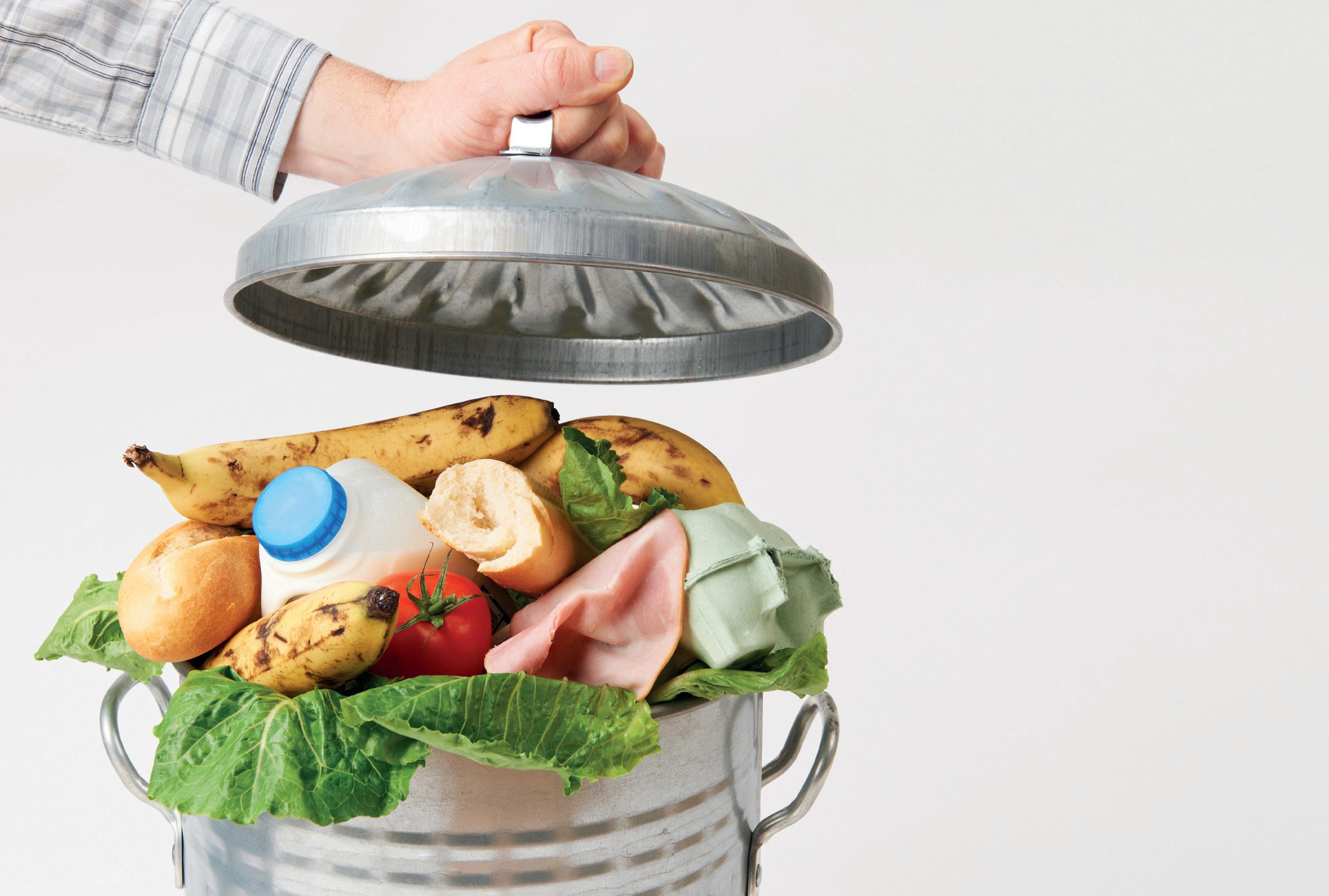18
FEATURE
Toxic waste
The Irish retail industry generates 100,000 tonnes of food waste each year. Julia O’Reilly examines the impact of food waste on the environment and what retailers are doing to combat the issue
M
ore than one quarter of food produced globally goes to waste. When that food is wasted, so too are the resources that go into its production. A global issue with wide-reaching environmental, social, and economic consequences, food can be lost or wasted at all points in the food supply chain. While consumers are responsible for generating a significant amount of waste overall, it remains crucial that those in the food industry prioritise food waste prevention and respond to unavoidable waste in a sustainable way. Still, much of Ireland’s food waste is avoidable. Research from Safefood has shown that up to 30% of the food Irish consumers purchase is thrown away, while the average Irish household throws out 150kg of food each year at a cost of approximately €700. Current food waste in the commercial sector in Ireland is estimated to be 303,000 tonnes per annum - one third of that is derived from retail alone.
change at the retail, production, and consumer levels. With 2030 just a few short years away, there is immense need for quick, effective action.
Waste prevention In a bid to steer our efforts towards achieving this goal, the Irish government recently launched a public consultation on the draft of Ireland’s National Food Waste Prevention Roadmap. This will set out the series of
Major offender Tackling food waste is one of the essential steps we must take to achieve sustainability, to help combat climate change, and to support the transition to a circular economy. A major environmental offender, food waste generates 8-10% of global greenhouse gas emissions each year. In line with the United Nations Sustainable Development Goals, Ireland has committed to reducing its food waste by 50% by 2030. In 2019, the Environmental Protection Agency (EPA) estimated that Ireland generated about 1.1 million tonnes of food waste. If Ireland is to shave that figure in half, there is a need for
ShelfLife March 2022 | www.shelflife.ie
actions required for us to meet our ambitious targets and members of the retail industry have been invited to participate in the consultation. In the meantime, there are ample methods retailers can embrace to limit their waste generation. Speaking with ShelfLife magazine, Arthur McGuire of McGuire’s Daybreak in Galway City said he uses several methods to manage stock levels and keep waste at a minimum: “Storage space within my store is very limited,” said McGuire. “This constrains us somewhat, so we have a number of ways to ensure we have just enough of what we need. “In the deli we use stock/order cards which are updated regularly with the assistance of our fresh food advisor. Waste sheets tell us what is not selling and those combined with our regular delivery schedules help ensure both quality and freshness is assured.” He continued: “In the shop we monitor dates on a daily basis and record them in a waste book which obviously tells us what’s not selling. Any item with a short date is put on promotion.”
Consumer insights
Arthur McGuire, who was named ShelfLife’s Convenience Store Manager of the Year 2021 in the Small category, strives to minimise food waste
McGuire also receives support and insights from his symbol group, Daybreak: “Being part of Daybreak gives us an insight into what is selling in other stores, and we also receive guidance from our Daybreak business development manager on consumer trends. As with the deli, our back office tells us how much we sell on a weekly or even daily basis, so we base our orders on those reports.” Engagement with customers is also essential, he added, and experience in the















